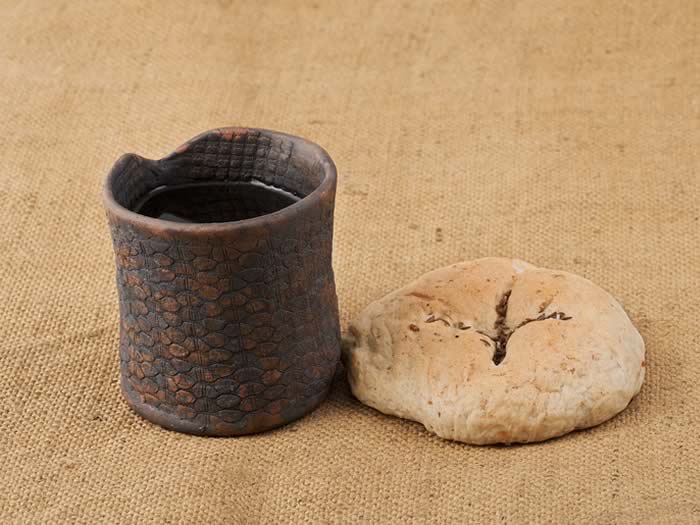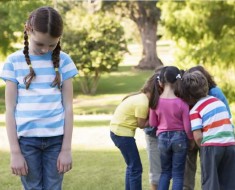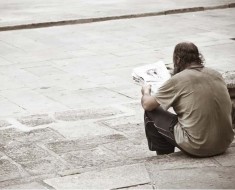Eph.4:25-5:2
John 6:35,41-51
‘…I am the bread of life…the bread that I will give for the life of the world is my flesh
You must often have thought of this, but we are brought by these words of John’s gospel face to face with the quite extraordinary physicality of his image of Christ as body – not spirit, not mind, not message even, but body.
John is probably writing more than half a century after the resurrection and meditating on the significance of the Christ event as it becomes the inspiration for succeeding generations of believers, increasingly separated from it. Just as in the wilderness the wandering children of Israel woke up hungry one morning to find the ground strewn with a bread-like substance laid out for breakfast, so John’s Jesus is seen as spiritual food which in a comparable way can sustain us. He is the living bread sent from God. So we eat and drink to remember him.
It’s not our sort of natural language, this extravagant use of imagery and yet the whole tradition of the Eucharist, the Holy Communion, the Lord’s Supper, the Mass, has been built upon it.
Offensive or just plain odd to many non-believers, we need to acknowledge its strangeness too. For this mysterious meeting between people around a table of faith with him who is the provider of faith, has been at the heart of Christian worship and discipleship for 2,000 years. It is part of a long tradition by which the material of our life becomes the means of deep piety and mysticism. That such a direct use of physical imagery – the body of Christ given for you; the blood of Christ shed for you – should have become the vehicle of spirituality for so many people over the years, is remarkable, and in every celebration of it we declare and deepen a new unity between body and spirit.
Three reflections and then a brief conclusion
First the general comment that we always need to interpret what we read in this amazing book
The curtain that conceals God from us is partly lifted by the words of this book, and every word and idea requires a thinking mind rather than a credulous one.
That takes you into a minefield of if’s and but’s, to say nothing of facing up to the numerous biblical scholars and struggling Sunday preachers who are waiting at every turn of the corner to share with us the fruits of their research. Even so, our discipleship demands that we do that. It can be a bit unsettling, but it is for me more dangerous to give to the words of scripture an authority that ignores your normal critical faculties, fallible though our reasoning powers will always be.
I deliberately referred to ‘John’s’ Jesus because of all the gospels the fourth is the one which is most personal to its author. Effectively it’s an extended theological reflection on what is remembered of the teaching and the life of Jesus. The consensus seems to be that the apostle John didn’t write it, that the author was influenced by the intense religious debates that were going on in the latter part of the 1st. century and that if he was writing for a Jewish audience, he was also much influenced by Greek thought. So you get this juggling between the seen and the unseen, between the mortal and the eternal; between word and flesh. The two are traditionally divided in Greek thought – they crash into each other sometimes but normally they are of two different realms.
John is determined to unite them. So flesh is not the opposite of spirit, the two inform and illuminate each other. The divine word becomes human flesh. For St. Paul the image of the body – the whole person – becomes so important that when he reflects on life after death, it is the resurrection of the body that he writes about. Not the old body – a new one, he says, but still recognisable as the person who has lived a physical, bodily life.
The reality of body
They can be a delight, bodies, but are often too a considerable nuisance to us. When you are youngish they can be fun as you test your powers and your sexuality, but also tyrannical, driving us to places which we are not sure we want to be. As we get older, they can restrict our freedom, spoil our pleasures, dictate changes in our way of living. And then there are the in between years, which bring their own peculiar responsibilities and stress when you not only realise that you are getting on in years, but see the visible signs of it. (I can still remember the shock of being 40!)But we are our bodies. We are not fraudulent angels waiting to be delivered from fleshy bondage. We are flesh. This is what it means to have life and what bonds us to the chemical, material realities of the universe to which our planet belongs, and to the earth on which we live and of which we are part.
And which bonds us to where our faith begins, the body of Jesus.
And so the church when it is most true to itself, is a community of bodies corporately becoming the sacramental body of Christ, wanting to reflect in our fellowship the reality of his earthly being. Terrifyingly found wanting and judged by that image, we are still challenged by it. Defined by it. In our being – worship, service, mission – in our love for each other and for our neighbour – we become a symbol of how it can – should – be for everyone. It’s an alarming and demanding image of how we are and we fail in our vocation so often , but we are to be the new humanity in Christ. And what a responsibility that is, in a world debasing the good in humanity at every turn, frantic in self interest, hands clenched and eyes closed to the rest of the human family. Dividing country against country, tribe against tribe, race against race, religion against religion. God give us grace to be what we have been called to be, the new body of Christ.
The inclusiveness of that humanity
A community of faith whose quietest and best moments may be around the table of fellowship can express the unity of all humankind and celebrate it. It often hasn’t been like that. As a young minister I went sometimes to the local Catholic Mass, always to watch, never to receive the elements. My brother minister and I were close as friends, separated as Christians, I an observer at a private occasion rather than a participant in a family event. But to be fair, there was a time in the Methodist tradition when you had to present your class ticket before you could share in the feast. It’s all got better across the denominations, but we all carry the shame of this table-fencing.
The amazing Desmond Tutu will have none of it. He was preaching in California a few years ago.»Jesus said, ‘If I be lifted up I will draw all, all, all, all, all. Black, white, yellow, rich, poor, clever, not so clever, beautiful, not so beautiful. It’s one of the most radical things. All, all are meant to be held in this incredible embrace that will not let us go. All: «Isn’t it sad’. ‘he continued, ‘that in a time when we face so many devastating problems – poverty, HIV/AIDS, war and conflict – that in our Communion we should be investing so much time and energy on disagreement about sexual orientation?» He went on to say Communion, which «used to be known for embodying the attribute of comprehensiveness, of inclusiveness, where we were meant to accommodate all and diverse views, saying we may differ in our theology but we belong together as sisters and brothers» now seems ‘hell-bent on excommunicating one another’.
At a meeting of the annual Methodist Conference there was a report from the Faith and Order Committee on how the church copes with its diversity. It stressed that the church consists of people relating to each other and to God . ‘Openness is central to the process of discerning the divine Word and responding to God’s will.’
‘Openness’ – so difficult – and yet when it happens it is the mark of our new humanity. In the world around us all we seem to see at the moment is the old humanity gone bad, mad, heedless in an orgy of greed, destruction and death. Everywhere people close doors against each other. But ‘‘we are members of one another’. We really do have to listen to each other, for we are all so different and must make room for others who may be more different still, as we crowd before the table of the Lord. Accommodating our diversities, as we create a community of hope and joy. Idealistic? Yes. Impossible? No. We should try it more.





